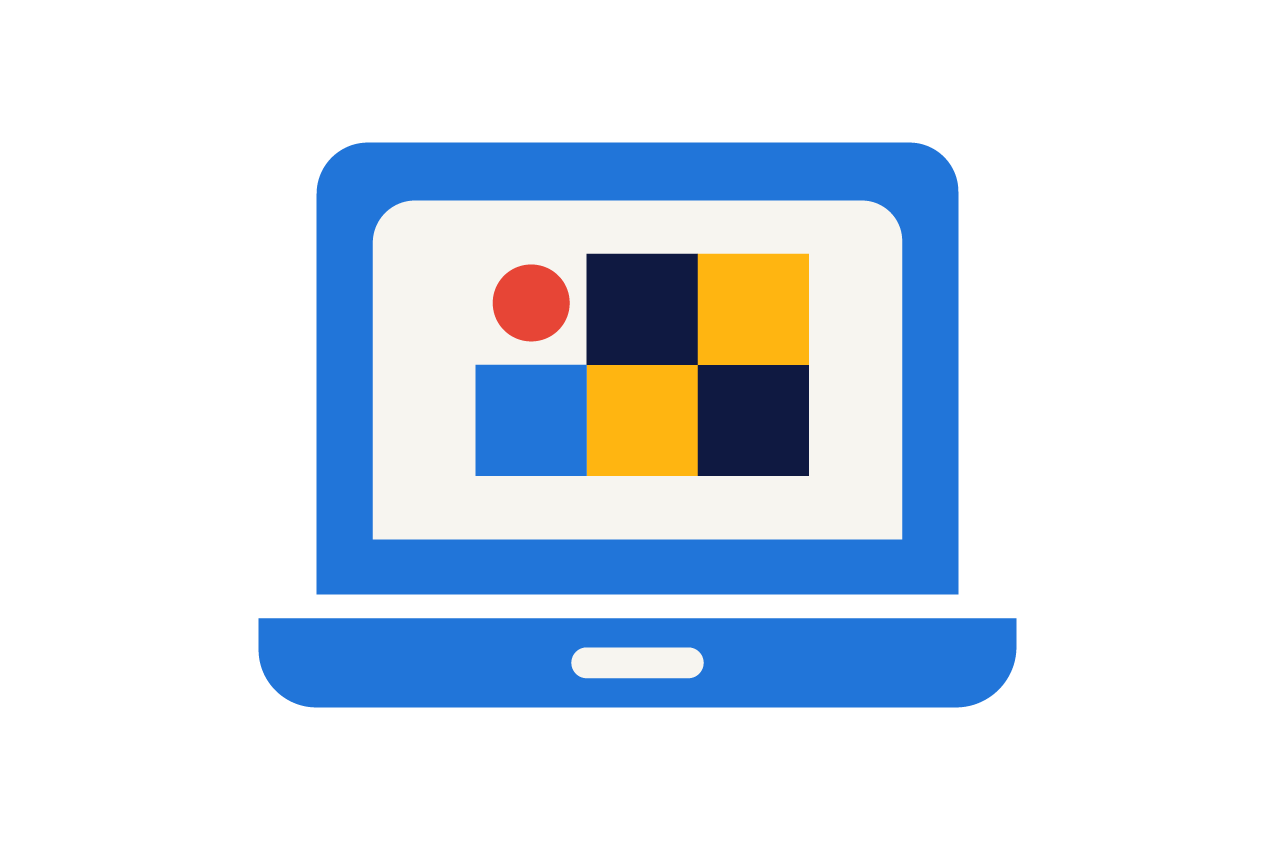In light of the changes that have occurred in how businesses operate and how people do their jobs in recent years, a key success factor for many companies will be their ability to manage a remote workforce.
COVID-19 forced employers in many countries and industries to shift to remote operations - a change that is widely expected to have permanent repercussions. PwC's CEO Panel Survey, which reflected the views of nearly 700 corporate leaders in June and July 2020, showed that 78% viewed remote collaboration as an 'enduring shift'. Six out of ten (61%) thought the same about low-density workplaces.
The events of 2020 also showed many employees how working remotely can be not just feasible, but beneficial, giving them more time, flexibility and control over their work/life balance. Those who have welcomed these benefits are likely to see a full return to traditional on-site working as a backward step.

Our December 2020 Workmonitor survey showed that 35% of global respondents saw a hybrid schedule - with some days spent in the workplace and some at home - as their ideal work arrangement.
Given how crucial it is to ensure you always have the right people in your workforce - both in terms of the number of employees and available skills - recruitment is one vital process you must be able to manage remotely.
At Randstad, one of the ways we help our clients reach their goals and optimise their HR processes is by keeping them up to date with the newest and most innovative technologies. This can help you reinvent your whole recruitment workflow, or focus on making a particular aspect of it more efficient.
Here are some of the HR tech tools we use to optimise your recruitment process:
virtual recruitment events
One of the many aspects of workforce management and HR that were forced to change in 2020 was the use of recruitment events by employers to engage and attract talent. When it became clear that large crowds of people gathering in indoor spaces wouldn't be feasible, physical events had to be cancelled and, in some cases, replaced by virtual alternatives.
This is something all businesses and workers can expect to see more of in the future. One of LinkedIn's predicted trends that will define the recruitment landscape in 2021 is the persistence of virtual recruiting, with 70% of talent professionals saying it will become the 'new standard'.
Aside from the obvious health reasons to hold virtual recruitment events during the COVID-19 pandemic, ongoing benefits of taking this approach include:
- Potential to augment the virtual platform with additional features such as rapid screening of applicants and video broadcasts to showcase your employer brand
- Chance of higher attendance, since online events can be made available to anyone in the world with an internet connection
- Easy sharing of digital content and assets like company videos and career brochures
- Instant and secure live chat
We can help your business realise these and other benefits by providing access to tools like Brazen, a virtual hiring event platform that can help you identify and engage with top talent. This software offers features that are specifically designed to help you get the most out of virtual events, such as chatrooms and separate 'booths' allocated to each open position.
Using the latest technology to host your own online recruitment events can prove particularly useful for targeting specific talent pools and building relationships with your ideal candidates.
workforce scheduling solutions
When you have to schedule temporary workers to fill gaps in your labour force, or you need the talent to help a short-term project run as smoothly as possible, it's vital that your workforce scheduling and planning are up to a high standard.
For employers that are used to traditional workplace planning methods - visualising and assigning resources in spreadsheets, for example - executing your key processes remotely might be a daunting prospect. Fortunately, there are technologies available to support and optimise your remote workforce planning.
Our approach to workforce scheduling offers the flexibility to switch between two different approaches, depending on your need. Randstad Youplan puts you in control and gives you an overview of your resources, helping you maximize the efficiency of your own planning.
If, on the other hand, you would rather outsource all of your workforce planning, you can do that with Weplan, or you can find a combination of these two methods that work well for you. We can even help you plan schedules for staff who weren't hired through Randstad.
The benefits of this sort of technology have become particularly clear amid the considerable growth in remote business operations in recent years. More and more companies are coming to depend on digital tools and systems that can be accessed at any time, from any location.
video interviewing tools
Video-based technologies became a lifeline for countless companies in 2020. COVID-19 restrictions led to considerable growth in remote working and colleagues became reliant on tools like Zoom, Skype, Google Meet and Microsoft Teams to stay in touch with one another.
And it's not just workforce collaboration that can benefit from video tools. When you're recruiting remotely, you can use video to add an extra dimension to the process.
There are many examples of how this can work. In addition to basic checks like reading a job applicant's CV, looking at their LinkedIn profile and scanning through a list of their qualifications and experience, you'll probably want to see how they speak and present themselves to get a better idea of who they are as an individual.
This is why the interview stage of the recruitment process is so important, and thanks to video technology, interviews can continue to take place even when the participants can't be in the same room together.
With a tool like Modern Hire, you can conduct interviews via video, but also make use of additional features including a scheduling tool. Modern Hire features a live video function to conduct face-to-face interviews, as well as an option to present and collect recorded videos, which proves useful at the pre-selection stage and when you need to share recordings with remote teams and stakeholders involved in the decision-making process.
The software also allows you to include appearances by people from within your company, such as team members or managers the applicant could be working with. This helps to present the human side of your organisation and adds an extra dimension to the virtual recruitment process.
reference checking
If the modernisation of your recruitment process includes a move away from in-person, manual and paper-based practices, digital reference checking is something you might want to consider.
Assessing references is a vital aspect of recruitment. It can help you check the most basic requirements for an individual to be considered for a particular role - whether or not they have experience in a key discipline or process, for example - and can also provide the final assurances you need to reach a final hiring decision.
However, it's also true that reference checking can be a time-consuming and laborious process, which makes it a good option for digitalisation and automation.
We use Checkster to optimise this stage of the recruitment cycle, replacing traditional reference calls with a digital workflow to save time, boost efficiency and reach more referees than you would otherwise. The platform also features additional functions including a dedicated system for collecting and consolidating interviewer feedback. This helps to remove bias from the hiring process and ultimately contributes to smarter, better-informed talent decisions.
skills assessment
Once you've navigated the earliest stages of recruiting for particular roles and started to narrow down your range of applicants, you'll begin to think about conducting assessments. Again, this takes on an entirely new dimension when a remote workforce is involved, with in-person interviews and assessment days at testing centres becoming difficult or impossible.
Video technology will certainly have an important part to play here, through functions such as showing a short video and following it up with a question. But it's also worth thinking about how you can be more innovative and potentially turn the remote element of the process to your advantage by embracing cutting-edge tools and assessment methods.
We help our clients add a new dimension to their candidate evaluations with systems like Pymetrics, which uses behavioural science, psychometrics, gamification and AI to match talent to opportunities. A key part of the Pymetrics approach is to go beyond resumes and build a more nuanced picture of people's capabilities and the sort of roles that are right for them. This can lead to positive outcomes for job seekers and employers alike.
Another innovative platform that is well-suited to the modern remote workforce is HackerRank, an online recruitment community and assessment tool that sources and ranks software developers by setting coding challenges.
This is a great example of how the power of modern technology and digital infrastructure can enable professionals to demonstrate their skills and connect businesses with exciting talent, regardless of geographical boundaries.
AI and automation
If one of your common challenges is managing some of the most time-consuming aspects of the recruitment process - such as early filtering of applications to find the most appropriate ones to move onto the next stage - you could benefit from the power of artificial intelligence and automation.
There are various ways that innovation in these areas is opening up new benefits for HR and making remote workforce management easier. You can now use dedicated software to screen resumes and deploy chatbots to engage with job seekers and answer high-level questions in real-time, 24 hours a day.
The Randstad Innovation Fund has provided support for tools like Wade & Wendy, which can help you raise efficiency and make the transition to a remote workforce easier by providing the technologies required for effective collaboration and information sharing.
One of the most valuable advantages of Wade & Wendy for employers is the ability to offload top-of-funnel recruitment activities. The platform can take on tasks such as sourcing, screening and recommending suitable candidates for available roles, and scheduling the next steps.
Job seekers also benefit from a quicker and more efficient application process, instant answers to basic questions and opportunities to go beyond their resumes and share more information with prospective employers.
Another useful tool is Crunchr, a dedicated cloud solution for workforce planning and analytics. This software can help you collect HR data from a range of sources and gain relevant insights into how your people are performing and where you can make improvements.
If you're looking for a detailed overview of the tools we use to deliver the best results for our clients and job seekers, you can download our short guide to some of our most exciting HR tech tools.






